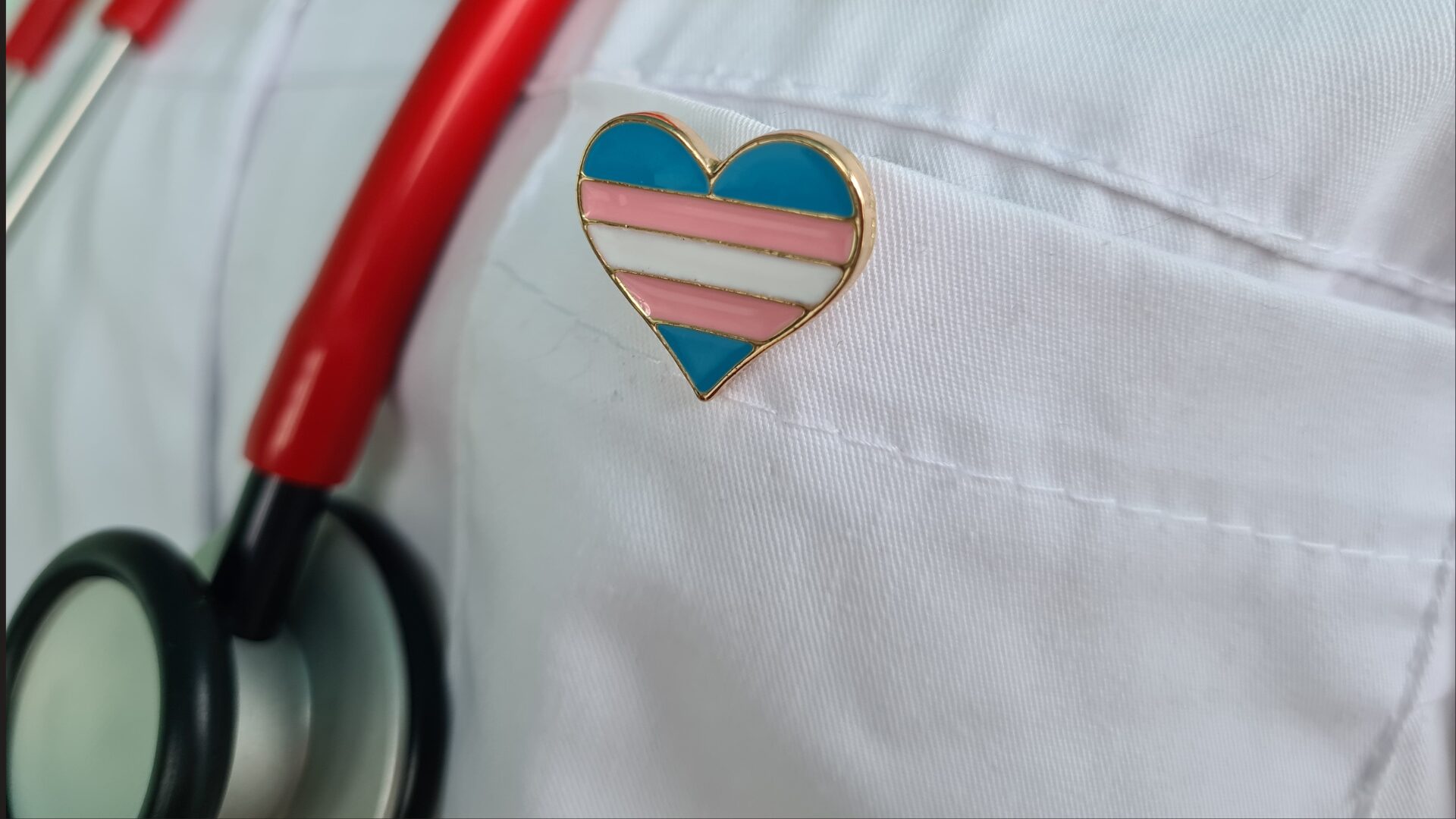
A long-delayed study funded by the National Institutes of Health (NIH) has found that puberty blockers do not significantly affect depression symptoms in gender-dysphoric youth.
The findings, posted online last month ahead of formal publication, contradict earlier research and have reignited scrutiny over the use of these treatments in minors.
The study, led by Dr. Johanna Olson-Kennedy of Children’s Hospital Los Angeles, followed 94 children between the ages of 8 and 16 diagnosed with gender dysphoria who were administered puberty blockers.
NEWS: Long-Awaited Puberty Blockers Study Is Out In Pre-Print, Finding No Change In Kids’ Mental Health
⬇️The New York Times reported in October that the lead author, Dr. Johanna Olson-Kennedy, had held off from publishing the study, which did not see mental health… pic.twitter.com/XqkXkcm2xb
— Benjamin Ryan (@benryanwriter) June 6, 2025
Trump’s Sovereign Wealth Fund: What Could It Mean For Your Money?
The research began in 2015 and was originally backed by a $5.7 million NIH grant.
This Could Be the Most Important Video Gun Owners Watch All Year
Over the course of the study, federal funding grew to nearly $10 million.
According to the paper, “depression symptoms did not change significantly over 24 months” of treatment.
The researchers noted that mental health among participants remained stable throughout the two-year period.
Despite these findings, Olson-Kennedy and her team concluded that puberty blockers “likely prevent the deterioration of mental health,” a statement critics have described as speculative.
Dr. Kurt Miceli, medical director for the advocacy group Do No Harm, which opposes medical transition procedures for minors, told the Washington Examiner that the conclusion “resembles a hypothesis rather than a definitive finding.”
He added, “A clear acknowledgment of their data would reveal that puberty blockers offer no mental health benefit. Despite this, the release of these results had been delayed for years. The full study once again demonstrates a lack of high-quality evidence supporting the so-called ‘affirming’ model.”
The delay in publication has been a point of contention.
In an interview with the New York Times in October, Olson-Kennedy admitted that her team had postponed the study’s release to avoid it being “weaponized.”
The move prompted significant public backlash and triggered a congressional inquiry.
Dr. Johanna Olson-Kennedy, who oversaw a years-long study on the effects of puberty blockers decided not to release her study because it “might be weaponized” in arguments against using trans treatments on minors.
The data shows that puberty blockers did not lead to… pic.twitter.com/XD8HU8umaq
— Libs of TikTok (@libsoftiktok) October 28, 2024
In December, Sen. Bill Cassidy (R-LA), who chairs the Senate Health Committee, and several Republican colleagues launched an investigation into the NIH’s funding of the study and requested documentation related to the project’s annual progress reports.
A spokesperson for Cassidy declined to comment on the ongoing status of the investigation.
The findings challenge earlier research, particularly a widely cited 2011 Dutch study that concluded puberty blockers reduced depressive symptoms in gender-dysphoric adolescents aged 12 to 16.
That study has served as a foundational basis for the global medical community’s adoption of early intervention practices.
The new NIH-funded research is raising questions about the scientific support for these practices.
Olson-Kennedy is a nationally recognized figure in the field of youth gender medicine and leads the Center for Transyouth Health and Development (CTYHD) at Children’s Hospital Los Angeles.
According to Do No Harm’s “Stop the Harm” database, CTYHD prescribed puberty blockers or cross-sex hormones to 103 minors between 2019 and 2023 and conducted 165 surgical gender-transition procedures on minors during the same period.
In December, 20-year-old Clementine Breen, a former patient of Olson-Kennedy, filed a medical malpractice lawsuit.
Breen alleges that Olson-Kennedy failed to refer her for psychiatric evaluation prior to beginning irreversible interventions.
According to the suit, Breen began puberty blockers at age 12, started testosterone treatments at 13, and underwent a double mastectomy at 14.
Massive news!
Clementine — a young woman given puberty blockers at 12, testosterone at 13, and a double mastectomy at 14 — is suing!
This lawsuit is devastating, and involves the biggest names in the fraudulent field of ‘gender medicine.’
She’s suing Dr. Johanna… pic.twitter.com/lYJM9SFHcr
— Billboard Chris (@BillboardChris) December 6, 2024
On May 1, the U.S. Department of Health and Human Services (HHS) released a 400-page metareview evaluating existing studies on gender-related interventions.
The report found that the standards of care set by organizations like the Endocrine Society and the World Professional Association for Transgender Health (WPATH) were heavily influenced by ideological positions rather than consistent scientific evidence.
Following the release of the report, HHS Secretary Robert F. Kennedy Jr. issued a guidance letter advising healthcare providers and state medical boards to stop relying on guidelines that promote medical interventions for gender-dysphoric children.
“These dangerous interventions for children,” he wrote, “are based upon ideology, not evidence.”
The NIH study’s delayed release, conflicting conclusions, and congressional investigation have placed renewed attention on the debate surrounding youth gender transition practices, the role of federal funding, and the accountability of medical institutions.
Connect with Vetted Off-Duty Cops to Instantly Fulfill Your Security Needs
The opinions expressed by contributors and/or content partners are their own and do not necessarily reflect the views of LifeZette. Contact us for guidelines on submitting your own commentary.

![Doctor Sat on Study Results Showing Puberty Blockers Didn’t Help Children [WATCH]](https://www.right2024.com/wp-content/uploads/2025/06/Doctor-Sat-on-Study-Results-Showing-Puberty-Blockers-Didnt-Help-750x375.jpg)

![Former Bravo Star Charged After Violent Assault Using a Rock-Filled Sock in Tennessee Walmart [WATCH]](https://www.right2024.com/wp-content/uploads/2025/07/Former-Bravo-Star-Charged-After-Violent-Assault-Using-a-Rock-Filled-350x250.jpg)



![Illegal Alien Walked Free After Decapitating Woman, Abusing Corpse for Weeks [WATCH]](https://www.right2024.com/wp-content/uploads/2025/07/1753013138_Illegal-Alien-Walked-Free-After-Decapitating-Woman-Abusing-Corpse-for-350x250.jpg)
![NYC Man Snatches Child Off The Sidewalk, Parents Chase Him Down [WATCH]](https://www.right2024.com/wp-content/uploads/2025/07/NYC-Man-Snatches-Child-Off-The-Sidewalk-Parents-Chase-Him-350x250.jpg)
![Karoline Leavitt Levels CNN's Kaitlan Collins and Other Legacy Media Reporters [WATCH]](https://www.right2024.com/wp-content/uploads/2025/07/Karoline-Leavitt-Levels-CNNs-Kaitlan-Collins-and-Other-Legacy-Media-350x250.jpg)
![Man Arrested After Screaming at Senators During Big Beautiful Bill Debate [WATCH]](https://www.right2024.com/wp-content/uploads/2025/06/Man-Arrested-After-Screaming-at-Senators-During-Big-Beautiful-Bill-350x250.jpg)
![Leftists Lose Their Minds After Jason Kelce Celebrates Being an American [WATCH]](https://www.right2024.com/wp-content/uploads/2025/07/Leftists-Lose-Their-Minds-After-Jason-Kelce-Celebrates-Being-an-350x250.jpg)




